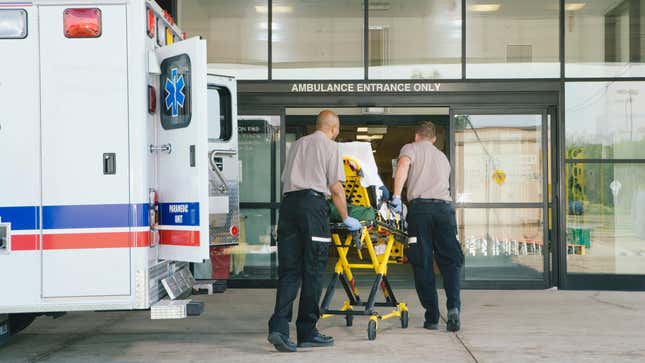A Tennessee Woman Had to Take a 6-Hour Ambulance Ride to Get an Abortion
Exceptions to abortion bans for the life of the pregnant person are often meaningless in practice.
AbortionPolitics

A pregnant Tennessee woman with high and rising blood pressure had to take a roughly six-hour ambulance ride to get an abortion in North Carolina, according to a report in the Wall Street Journal. When she got to the second hospital several hundred miles away, her blood pressure was dangerously high and she was showing signs of kidney failure.
The woman’s doctor in Tennessee, Leilah Zahedi-Spung, is a high-risk obstetrician who spoke to the WSJ for a story about how abortion bans impact medical emergencies. Zahedi-Spung said the patient was in her second trimester when her blood pressure began rising; the fetus had been diagnosed with genetic abnormalities and wasn’t expected to survive. Zahedi-Spung worried the woman could develop life-threatening preeclampsia and thought she needed an abortion, but the procedure has been banned in Tennessee since late August. Eight states border Tennessee and abortion is banned in all but two of them.
“She kept asking if she was going to die,” Zahedi-Spung told the WSJ. “I kept saying, ‘I’m trying, I’m trying, we’re going to make it happen. We just need to get you to the right place where you can be taken care of.’” She said she was relieved to see the patient alive a few weeks later.
-

-

-

-

-

-

-

-

-

-

-

-

-

-

-

-

-

-

-

-

-

-

-

-

-

-

-

-

-

-

-

-

-

-

-

-

-

-

-

-








































